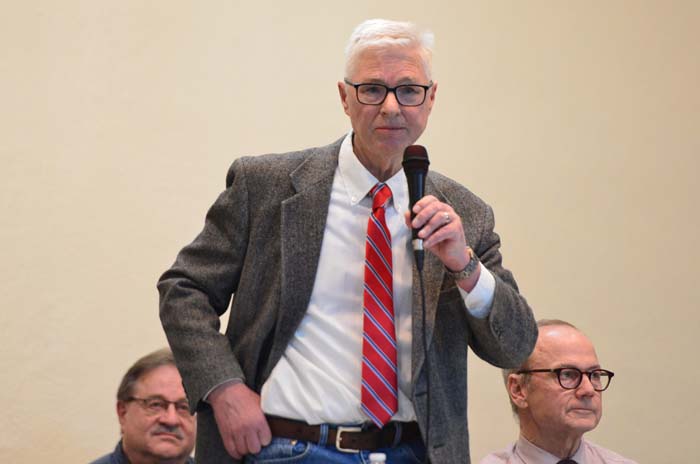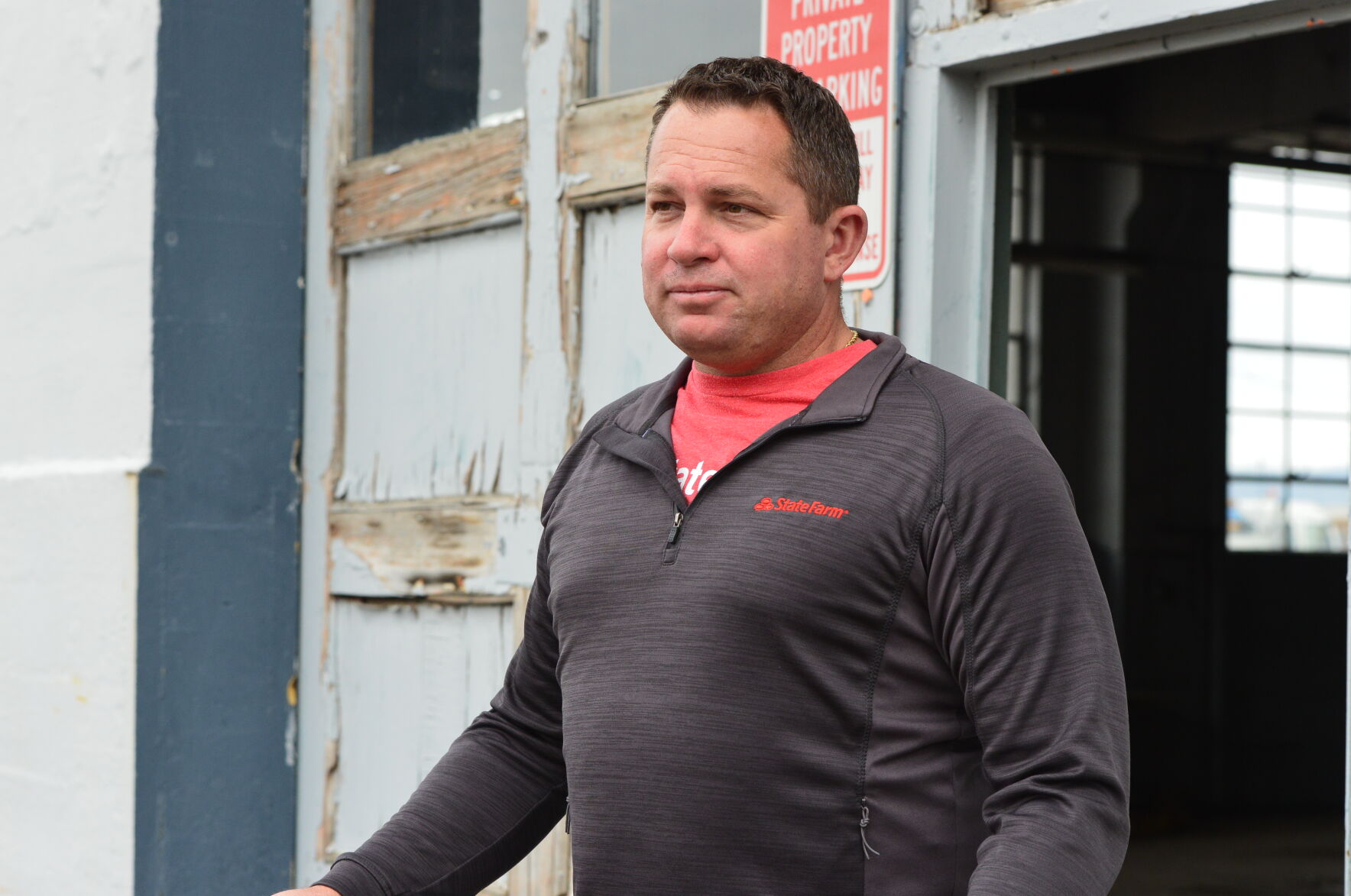Judicial election heats up at candidate forum in Union
Published 8:00 am Monday, March 25, 2024

- Union County Circuit Court Judge Wes Williams answers questions during the candidate forum at Catherine Creek Community Center in Union on March 21, 2024.
UNION — The candidate forum at Catherine Creek Community Center in Union on Thursday, March 21, got off to a heated start among the three judicial candidates.
There are two positions up for election on the 10th Judicial Circuit Court, which serves both Union and Wallowa counties. Judge Thomas Powers is running uncontested for Position 1. He has served since his appointment to the bench in 2017 and has been the presiding judge for much of that time.
“I don’t have an opposition candidate, but I just thought it was important that I come to these events, so that I can take, as a public servant, the questions that you all have and explain the work that the court is doing and the work that I am doing on the court,” he said.
Jared Boyd, a Union County defense attorney, is running against incumbent Wes Williams for Position 2 in the May 2024 primary election. Williams was elected to the 10th Judicial Circuit Court in 2018.
House Bill 4002
The first question, which inadvertently kicked off an entire debate, was about the impact that House Bill 4002 will have on the local court. In the recent session, the bill, which reintroduces criminal penalties for drug possession, was approved by Oregon legislators in response to what many see as the failure of Measure 110.
Williams was given the opening response. He said the bill will allow law enforcement to enforce the drug laws, which will bring more people into the courts. It will give the court “teeth” in the drug laws again.
Powers said the bill will have a “really significant” impact on the court, creating an inflow of people being charged with crimes who have a constitutional right to representation. This means there will be a greater need for public defense attorneys. However, there is a shortage of public defense attorneys in the region.
The court will also need to create programs to deal with misdemeanor level people coming into the system, Powers said, since drug court is traditionally for high-risk, high-need individuals. He added that there is a lot that will need to be figured out on the back end of how to manage and track these cases.
“The workload is going to be intense. The workload is going to be immediate, but I think we’re up to the challenge,” Powers said.
Boyd closed out the question. He said that there will be a “huge influx” of cases, which since the passing of Measure 110 have been classified as violations. Those cases are now going to involve the local district attorney’s offices.
“For the last four years, the district attorney has been disqualifying Wes Williams off of every criminal case. So, those violations where he could hear them are no longer going to be able to be heard,” he said. “That is a ticking time bomb waiting to explode on our already burdened court system.”
After answering the next question, Williams said he needed to correct a “false statement” made by Boyd. The circuit court judge said the Oregon Legislature passed Senate Bill 807 in order to stop district attorneys from removing elected judges from criminal cases.
“So, the district attorney will no longer be removing me from criminal cases after an 807 hearing,” Williams said. “The Oregon Legislature knew that what the DA was doing was wrong, and Mr. Boyd is well aware of Senate Bill 807. And he’s well aware that I will be hearing a full criminal docket.”
Boyd responded to this during his closing remark. He said that the Senate bill requires a judge to request an 807 hearing and that Williams has not requested one since the bill went into effect. He added that moving forward to craft procedures that work for the local community will require working with the Union County and Wallowa County district attorney’s offices.
“If the DA doesn’t want you on their cases, it’s going to be hard to work with them, crafting those policies going forward. Senate Bill 807 isn’t going to fix that,” Boyd said.
Williams came back to this during his closing statement. He said he is acting in consultation with other judges who are experiencing the same issue. They have decided to be “cautious and judicious and give the DAs an opportunity to do the right thing and then do an 807 thing.”
When not debating case loads, the three judicial candidates also answered questions about bullying, enforcing the law and court-appointed special advocates.
Dependency cases
Powers felt the need to step in and clarify that he also hears a fair number of dependency cases after Williams said he heard the “entire juvenile dependency docket.” The presiding judge added that just last week he handled a dependency case in Williams’ courtroom because Willaims was unable to.
“I interrupted proceedings in courtroom two, in the middle of drug treatment court, and literally ran around the hallway and jumped into the bench in courtroom one. Did a one hour and 15 minute contested shelter hearing. I actually wrote my judgment on the bench,” Powers said. “So I did that and I ran right back in and did the rest of drug treatment court.”
Williams responded that this was not the whole truth. He said that at the last minute Boyd — who was one of the five lawyers on the case — removed him from the case. Williams added that Boyd has been removing him from his cases since Boyd started running for judge.
Powers closing statement
Powers took the opportunity to speak about some of the things he is proud that the 10th Circuit Court District has done. He said that Union County has been a statewide model for pretrial release and bail after the legislature turned statues upside down. In the last two years, court staff, law enforcement and jail staff from across the state have come to Union County to train and understand how to effectively manage pretrial release.
“We are a national leader with court staff who are traveling around the country training other rural districts how to manage all of those,” Powers said.
Powers also spoke about the effectiveness of the three speciality courts he presides over — Union County drug court, Wallowa County drug court and Union County behavioral health court. For those coming out of drug treatment court — an intensive 18-to-24 month program — 67% have never been arrested again.
“We turn their lives around, they rebuild their lives and we protect public safety because they don’t reoffend. I’ve been managing that for seven years and I would love to have somebody, a partner on the bench, who can do that with me. Right now, it’s just me,” Powers said.





